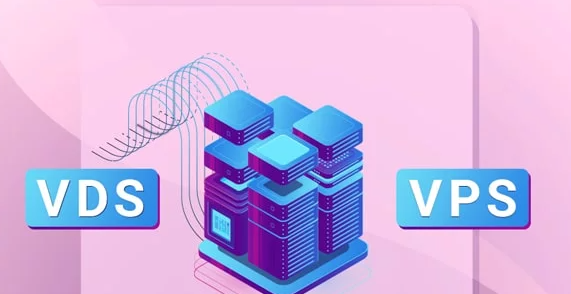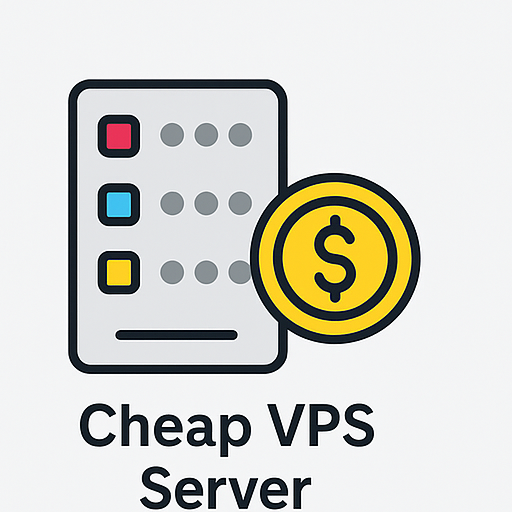
Have you ever outgrown shared hosting yet felt that a dedicated server was too powerful for your website’s requirements? This is where virtualized server solutions such as VPS and VDS come into play. Both provide strong features but with a few significant differences between VPS and VDS. If you’re confused about the differences between VPS vs VDS servers, you’re in the right place. In this guide, we explore how each works, the best use cases, and how to select the best virtual server solution for your website’s growth.
What is VPS?
VPS (Virtuele privéserver) is a virtual hosting solution where a physical server is divided into multiple virtual servers using virtualization technology. Each VPS instance operates with its own operating system and dedicated resources, functioning independently from others on the same server.

Betaalbare VPS -hosting nodig
Vanaf $ 3,99/maandelijks
⚡ Snelle levering | 🏅 25+ Datacenters
How VPS Works
- A hypervisor divides a physical server into multiple isolated virtual servers.
- Each VPS has allocated CPU, RAM, en opslag.
- Users choose their OS (Linux or Windows) and install applications.
- Every VPS has a unique IP address.
- The environment is flexible and scalable.
What is VDS?
VDS (Virtuele dedicated server) appears similar to a VPS but offers more robust resource allocation. A VDS assigns a fixed portion of physical server resources to a single virtual server, ensuring consistent performance.
How VDS Works
- A powerful physical server is split using a hypervisor.
- Each VDS gets a guaranteed share of CPU, RAM, en opslag.
- Complete root access allows deep customization.
- Greater isolation compared to VPS for improved security and stability.
Comparing VPS vs VDS Servers
Resource Allocation
- VPS: Flexible, shared resource model. Great for smaller websites or applications.
- VDS: Guaranteed dedicated resources. Ideal for demanding workloads.
Isolation and Privacy
- VPS: Isolated from other VPS instances but shares the physical server.
- VDS: More isolation. Each VDS operates almost like a dedicated server.
Performance and Scalability
- VPS: Good performance, suitable for moderate workloads.
- VDS: Superior performance, ideal for high-traffic sites and scalable without migration.
Security and Reliability
- Both offer robust security features like firewalls, intrusion detection, and data encryption.
- VDS provides an additional layer of security through physical resource isolation.
Pricing and Availability
- VPS: More cost-effective, available from most hosting providers.
- VDS: Higher cost due to exclusive resource allocation. Not as widely available.
Use Cases for VPS and VDS
VPS Use Cases
- High-Traffic Websites: Scalable hosting for growing websites.
- Web Applications: Custom configurations and software.
- Development and Testing: Isolated environments for developers.
- E-mailhosting: More control over spam filtering and mail server configuration.
- Gaming Servers: Host multiplayer games with better performance.
VDS Use Cases
- Mission-Critical Applications: Stable and consistent resource availability.
- E-commerce Platforms: Security and uptime for online stores.
- Heavy Resource Operations: Tasks like data analysis and rendering.
- Custom Software Development: Full control for development teams.
- High-Security Requirements: Strict access control and environment management.
Choosing Between VPS and VDS
When to Choose VPS
- You’re launching a new website or a lightweight application.
- You’re working with a limited budget.
- You require moderate performance and scalability.
When to Choose VDS
- You need guaranteed performance for a high-traffic website.
- You require full control and root access for advanced configurations.
- You prioritize top-level security and server isolation.
Conclusion
The difference between VPS and VDS lies in the level of control, prestatie, resource allocation, and cost. VPS offers a balance between affordability and flexibility, making it suitable for startups and medium-sized projects. On the other hand, VDS is ideal for businesses and developers requiring high performance, reliability, en aanpassing.
Whether you’re hosting an e-commerce store, a web application, or a development environment, understanding VPS vs VDS servers helps you make informed decisions that align with your project’s growth and performance goals. Choose wisely based on your current needs and future scalability requirements.

